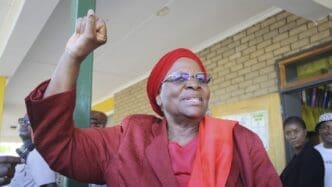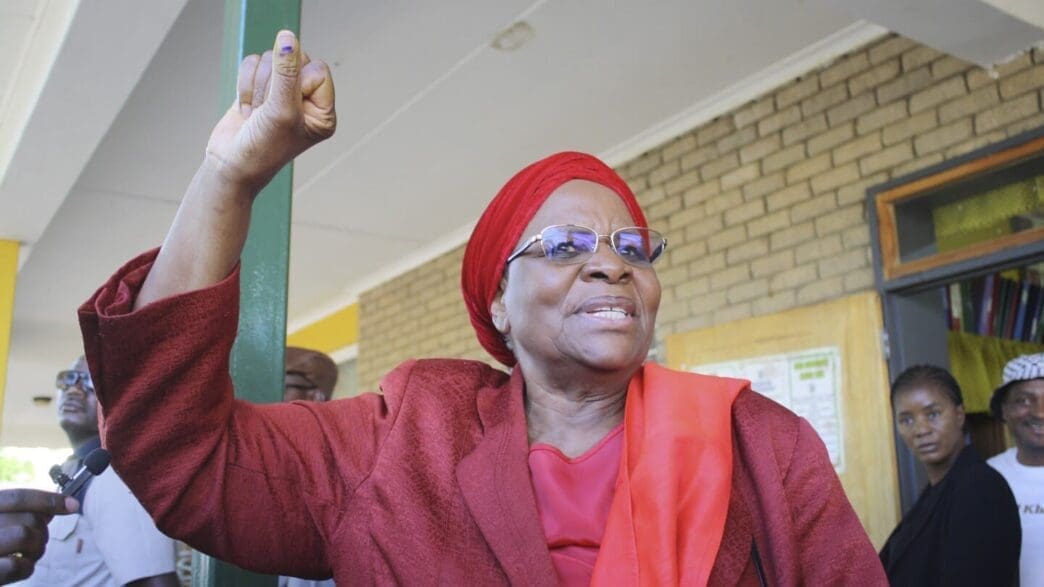In a closely watched presidential election in Namibia, Vice President Netumbo Nandi-Ndaitwah has emerged as the leading candidate, representing the ruling South West Africa People’s Organization (SWAPO). Despite early technical difficulties and opposition allegations, preliminary results favor Nandi-Ndaitwah, stirring political tension within the nation.
The election, held in Windhoek on November 27, 2024, was marked by logistical setbacks, including a shortage of ballot papers. These complications led election authorities to extend voting at several polling stations for three additional days. Such procedural anomalies have spurred opposition parties to contest the legality of the extension, raising concerns over the election’s legitimacy in a country known for its stable democratic practices.
With around 56% of the votes counted, Nandi-Ndaitwah, who aims to become Namibia’s first female leader, holds a significant lead. Her nearest rival, Panduleni Itula of the Independent Patriots for Change, trails with 27% of the vote. However, only 220,000 out of the roughly 1.4 million ballots have been tallied, leaving room for changing dynamics as counting continues.
Opposition leaders, including McHenry Venaani of the Popular Democratic Movement, have heavily criticized the electoral process. Venaani emphasized the importance of maintaining democratic integrity, stating, “It is about our country, it’s about our democratic credentials, it’s about the country that must work for everybody, the poor and the rich. It cannot only work for those who want to remain in power by hook or by crook.”
Despite these challenges, the Electoral Commission of Namibia has dismissed calls for a rerun, standing firm on the validity of the process. This stance has prompted opposition parties to prepare for a legal challenge, reflecting a broader dissatisfaction with ruling parties across Southern Africa. Similar sentiments have been witnessed in neighboring South Africa and Botswana, where long-standing political parties have faced unprecedented electoral challenges.
The economic backdrop of Namibia, including high unemployment and public frustration over corruption scandals, adds another layer of complexity to the election. SWAPO, which has governed since independence in 1990, faces growing scrutiny as citizens demand accountability and improved governance.
As final results are anticipated this week, the election outcome could reshape Namibia’s political landscape. While Vice President Nandi-Ndaitwah remains a strong contender, the ongoing disputes emphasize the underlying tensions and highlight the critical role of transparent electoral processes in maintaining democratic stability.
Source: Apnews








